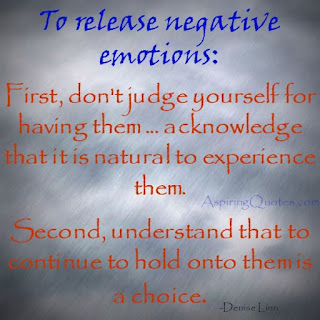People with high levels of self-compassion demonstrate four behaviors:
They are kind rather than judgmental about their own failures and mistakes
They recognize that failures are a shared human experience
They take a balanced approach to negative emotions when they stumble or fall short
They allow themselves to feel bad, but they don’t let negative emotions take over.
Self-compassion is a positive attitude we can have towards ourselves. Having self-compassion means being able to relate to yourself in a way that’s forgiving, accepting, and loving when situations might be less than optimal. We know that it’s similar to, but less permanent than, self-love and that it’s different from self-esteem, but how do we show self-compassion?
Self-compassion is a practice of goodwill, not good feelings. With self-compassion we mindfully accept that the moment is painful, and embrace ourselves with kindness and care in response, remembering that imperfection is part of the shared human experience.
We can start by thinking about how we would treat others that we care about. So while we can’t always take away others’ pain, we can validate its existence and provide support to help them get through it and grow.
Let yourself make mistakes. Self-kindness says: “I'm human and so is everybody else. And that’s okay.” Rather than interpreting our thoughts, feelings, and behaviors as who we are, we can let ourselves off the hook when we might do the same for others. If a friend gets lazy and doesn’t answer your phone call, you probably won’t instantly assume they’re a bad person. Giving yourself permission to be human once in a while is one way to accept your flaws, and remind yourself that we are all imperfect, you are not alone.
Care for yourself as you’d treat others. This is about being understanding and empathetic towards yourself. If a friend is feeling down, hurt, or upset, you might physically pat them on the back or hold their hand. Along with tender, forgiving language - even using terms of endearment to yourself like “darling” or “sweetheart” - these gestures can lead us to feeling self-kindness even if we’re initially reluctant. Go slow with the terms of endearment if it seems weird at first.
Use “Releasing Statements”. These statements are closely related to self-forgiveness and tap into the mindfulness concept of detached non-judgment. When you catch yourself thinking a negative thought like “I’m such a horrible person for getting upset”, try turning it around and release yourself from the feeling. Instead, try “It’s okay that I felt upset”. “It's okay that I made a mistake.”
Try self-acceptance. This means embracing our own perceived shortcomings as well as our character strengths. Self-compassion is about not over-inflating these shortcomings into a definition of who we are—rather, thoughts and feelings are behaviors and states of being.
Practice mindfulness. Mindfulness practices are a good way to center ourselves in the moment. Not only is mindfulness one of self-compassion’s core constructs, but a lot of exercises such as yoga and deep breathing can be used anytime, anywhere. I recommend guided nurturing meditations – I use an app called Insight Timer. Search for self-compassion guided meditations.
Don't judge yourself so quickly. Stop expecting yourself to behave a certain way. It’s easy to assume things like “I get really grumpy and antisocial on flights”, which sometimes prevents the possibility that you’ll act a different way. This is once again about treating yourself as you would others, and just a future-focused way to give yourself the benefit of the doubt. Believing we act a certain way “because... I'm hangry/didn't get enough sleep/etc” is reinforcement of a negative belief about ourselves.
Let go of the need for external validation. Much of our negative beliefs comes from how others perceive us. If we’re beating ourselves up for eating something, for instance, a lot of that self-directed anger stems from social pressures, like the pressure to look a certain way or maintain a certain weight. Choosing not to tie our happiness to outside influences is an act of self-kindness with a much larger impact.
Reach out to others. This might sound like the opposite of the above, but in fact, this technique is more about placing our feelings in context. When we talk with others, we realize that we’re not alone in feeling pain at different times. It’s an important part of reaffirming our sense of being connected, rewording our perceived problems with the ‘bigger picture’ in mind, and building social support networks that are priceless to our well-being.
Exercise: How would you treat a friend?
Take out a sheet of paper and answer the following questions:
First, think about times when a close friend feels really bad about him or herself or is really struggling in some way. How would you respond to your friend in this situation (especially when you’re at your best)? Write down what you typically do, what you say, and note the tone in which you typically talk to your friends.
Now think about times when you feel bad about yourself or are struggling. How do you typically respond to yourself in these situations? Please write down what you typically do, what you say, and note the tone in which you talk to yourself.
Did you notice a difference? If so, ask yourself why. What factors or fears come into play that lead you to treat yourself and others so differently?
Write down how you think things might change if you responded to yourself in the same way you typically respond to a close friend when you’re suffering.
Practice kindness and compassion for yourself today!


.png)


.png)
No comments:
Post a Comment